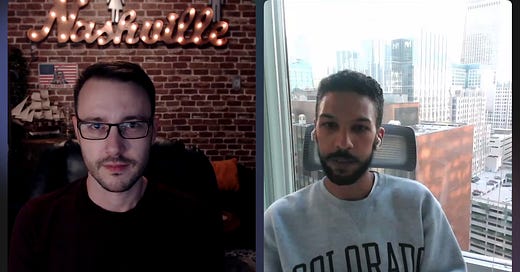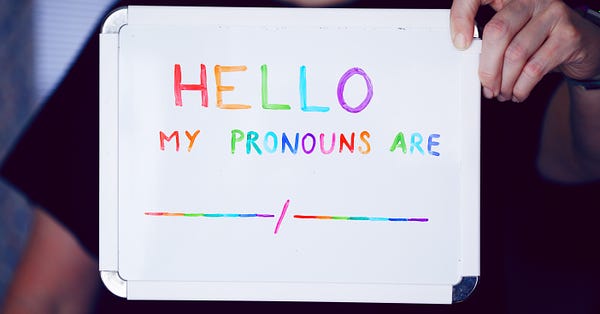Colin obtained his Ph.D. from the University of California, Santa Barbara, and his background in evolutionary biology has informed many of his positions. Still, the ones that get the most attention today are related to sex, gender ideology, and Critical Social Justice. Often, individuals will engage his relatively firm views by labeling him a bigot or saying he doesn’t care about marginalized or discriminated groups of people, plus a slew of ad-hominem attacks.
I don’t believe these attacks are warranted.
I actually like Colin. I think he is genuine, logical, rhetorically gifted, and thoughtful.
So I hosted Colin in the interests of freedom of speech, open inquiry, and academic freedom, which I believe are foundational elements of a high-functioning democracy.
At the beginning of the episode, seen above (press play if you haven’t already), I explain to Colin that while I acknowledge the validity of his views, I do know the importance of denying certain realities when engaging in political dissent or when arguing for the betterment of a broader set of people. This is to say that there are practical applications that have spawned from critical theory, queer theory, critical race theory, etc., which I believe have made some meaningful contributions to our society. I have read many thousands of pages of feminist literature, leftist or anarchist thinking on liberation, anti-state viewpoints, abolition, deconstruction, and more. So I understand that whether discrimination is real or perceived, it harms people’s daily lives. People in a liberal democracy have a right to air their grievances and fight for what they believe is right. As long as it’s principled, I don’t see any reason to obstruct that.
I did not host Colin as a means of echoing his sentiments or being agreeable because his narrative aligns with my own personal and political motives (assuming it did.) If anything, I hosted Colin to have a balanced discussion and to round his viewpoints off with some comparative discussions on liberty, meaningful social movements, concerns of parents, issues with holding public discourse on important topics, and what many would say is ideological uncertainty that our schools, our workplaces, and our political institutions are dealing with.
As many of you know, I come to these discussions as an undergraduate student in political science at the University of Colorado, Boulder. At least, discussions with thought leaders like Colin and the many others I’ve hosted on my platform serve as a container of thought where I can test ideas from my studies.
Does any of these mean that hardline views on sex and gender should prevent people from seeking justice? Colin says no. He says in our discussion on multiple occasions that he doesn’t see any reason to prevent people from seeking justice, creating more inclusive societies, or fixing fundamental problems. He can’t see a way to separate sex from a biological reality that exists in extensive amounts of data across many species. And he will go on to explain.
I hope you enjoy this conversation. It is the first raw interview that I have posted with a video. Below you will see links to additional content from Colin.
You can find his substack here:
Here is Colin on the Joe Rogan Podcast if you’d like to take a listen:
And don’t forget to follow Colin on Twitter:








Share this post